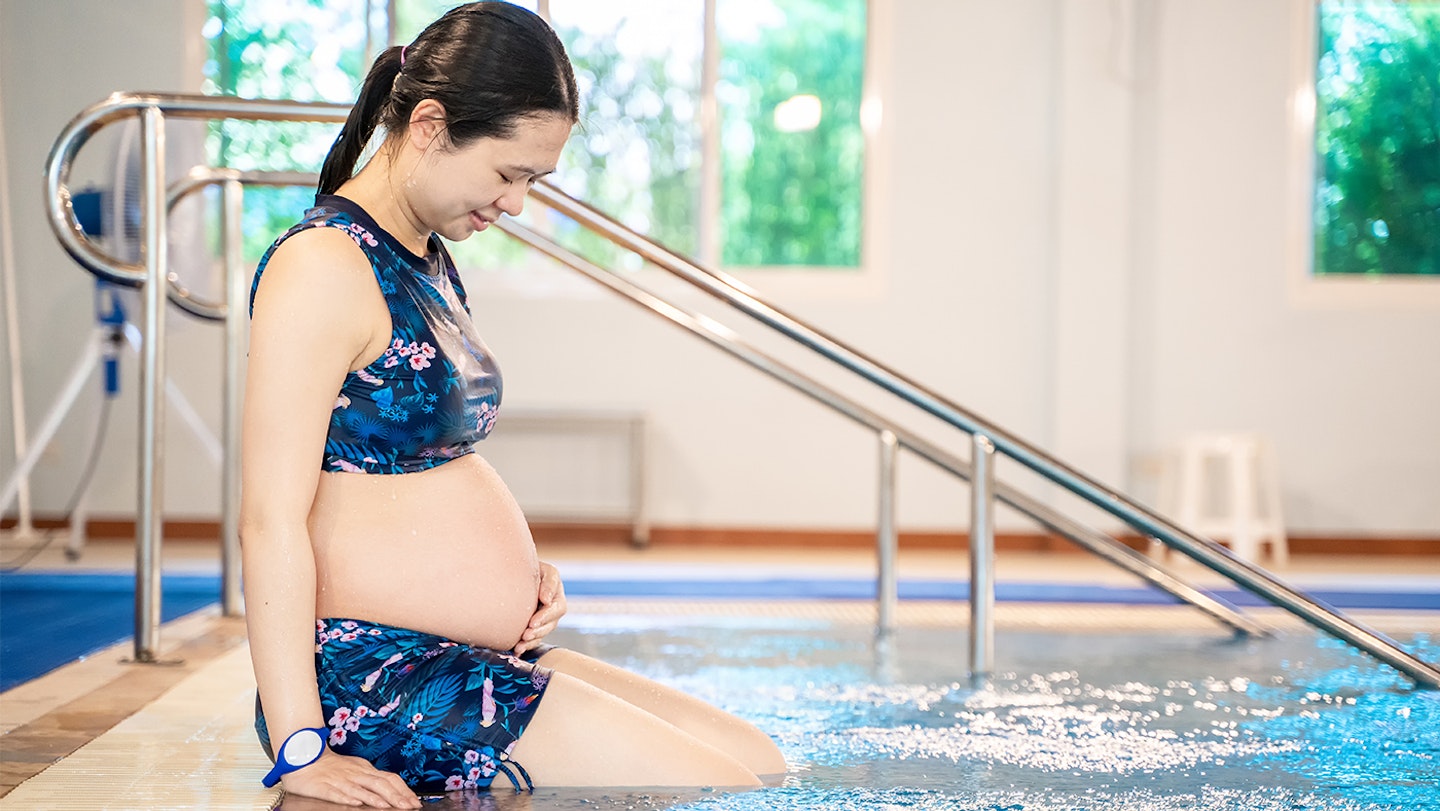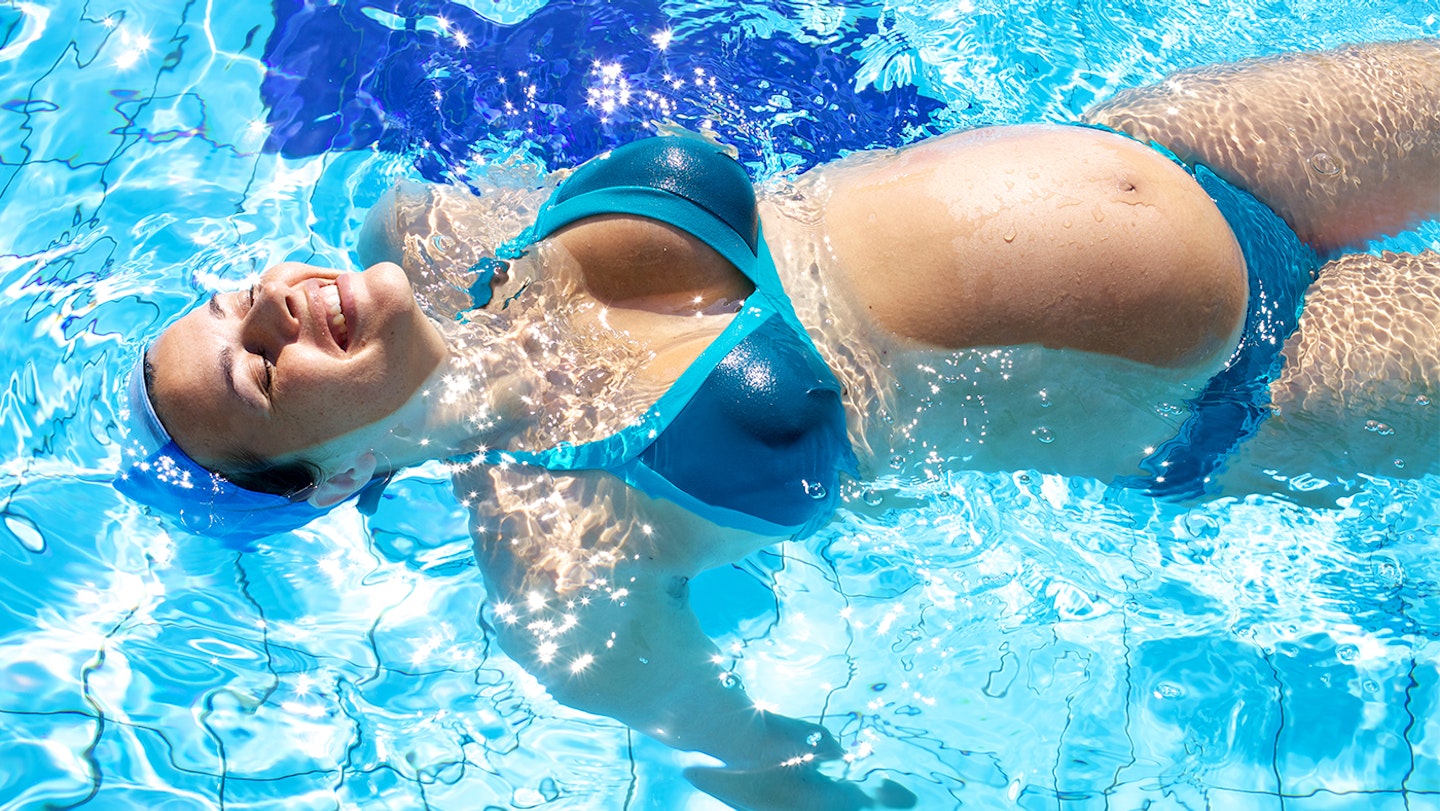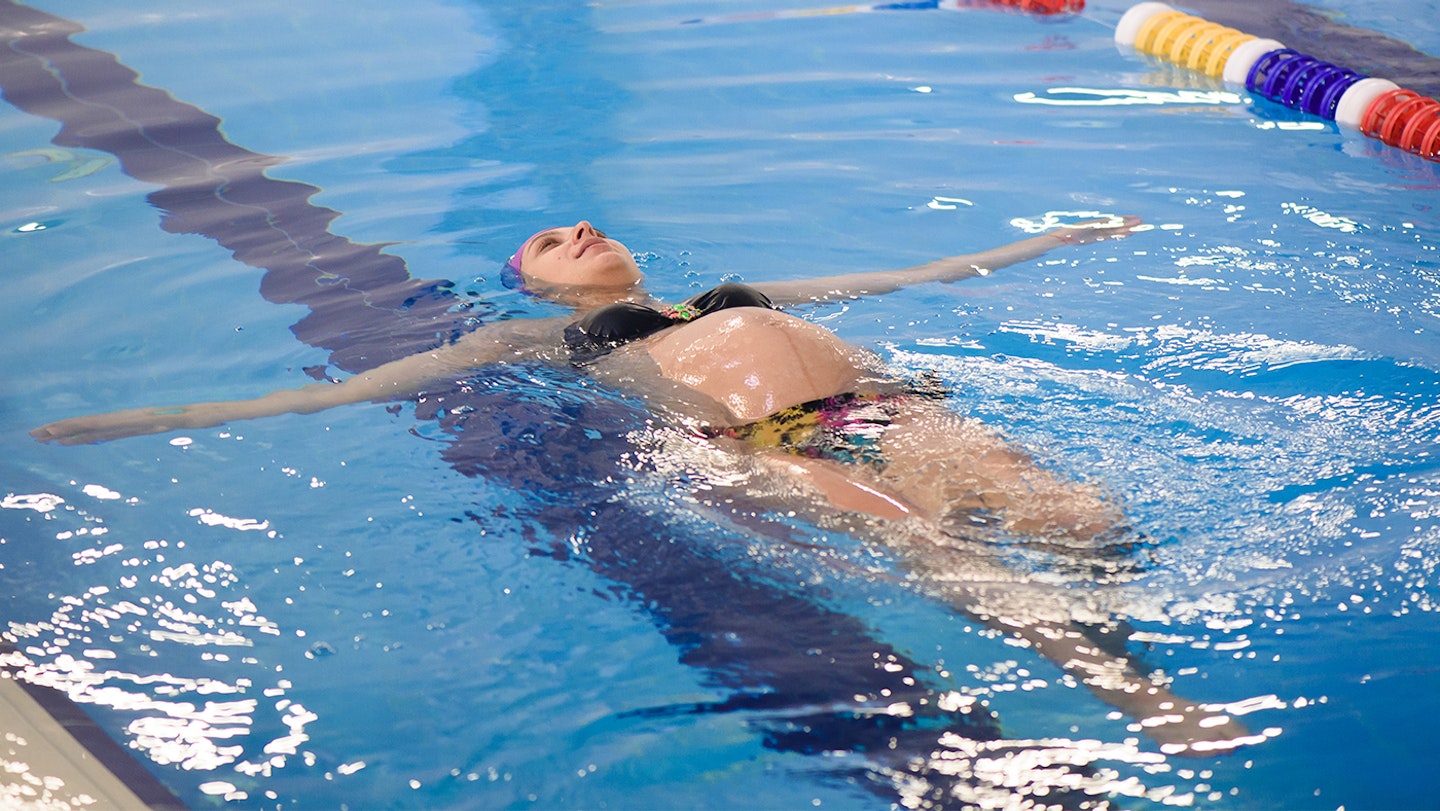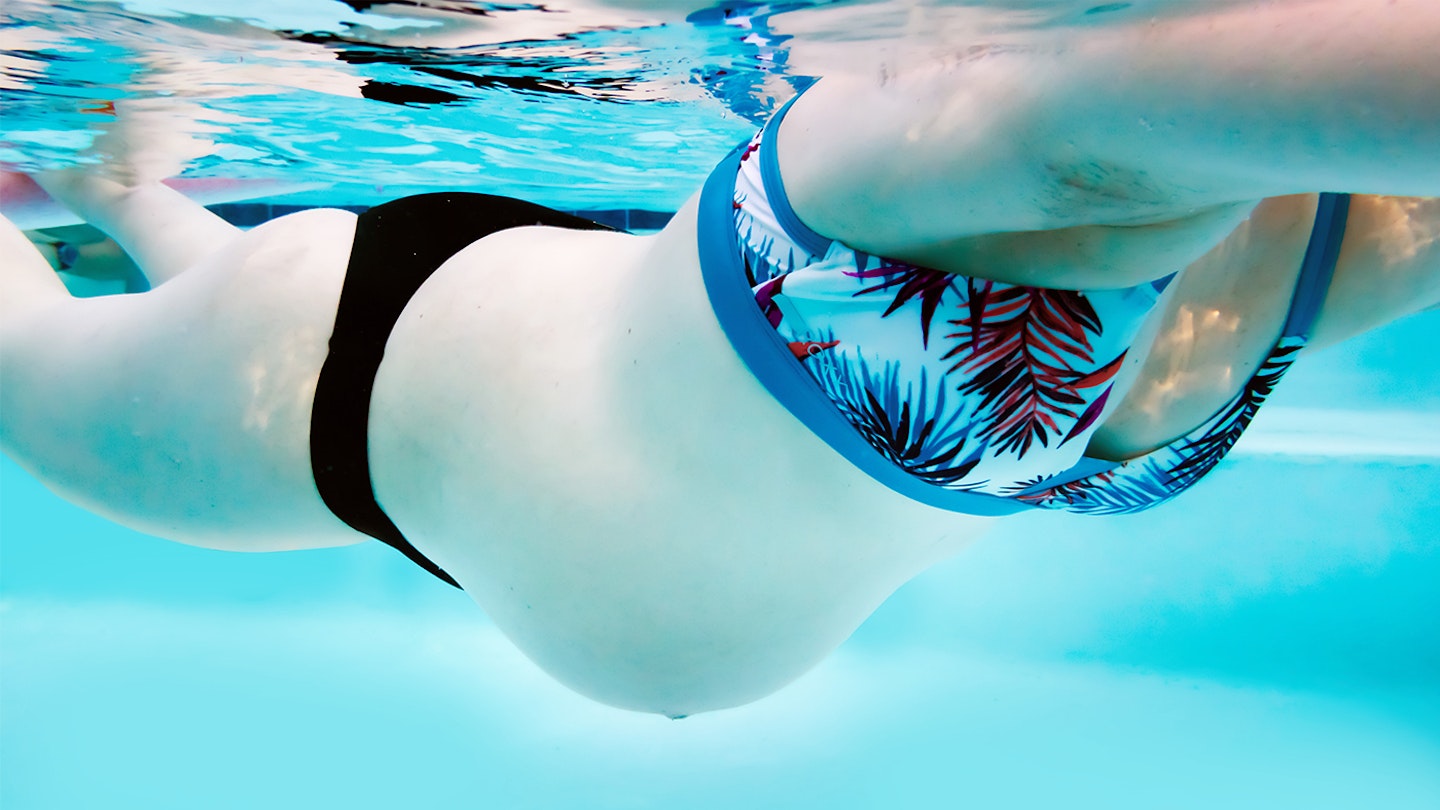We get it, the idea of doing anything much when you're pregnant can be pretty unappealing, especially as your bump gets bigger and mobility isn't the easiest. But stick with us because swimming when pregnant is not only enjoyable and pretty relaxing but offers plenty of benefits for you and your bub.
Grab your cossie and let's go swimming!
Benefits of swimming when pregnant
“Swimming is one of the best exercises during all stages of pregnancy, providing a safe, warm, private environment together with the ability to maintain fitness throughout pregnancy and beyond," explains Professor Greg Whyte, world-renowned sport scientist and Physical Activity Expert.
When you swim during pregnancy, this stimulates your blood flow and causes your body to release endorphins. Endorphins are incredible, natural pain relievers, which leave you (and your baby!) feeling fantastic**.**
The buoyancy in the water will be a welcome relief as it will take the pressure off your bump and lower back. Heaven!
Swimming when pregnant can help keep you cool, relieve nausea, back pain and lower limb swelling and discomfort and improve blood circulation.
Exercise such as swimming can also help combat the growing issue of obesity and gestational diabetes; keeping fit and healthy during pregnancy is good for you and your baby.

Safety while swimming when pregnant
• Find a comfortable swimming stroke for your body. You should avoid breaststroke as the kicking action may cause you pain if your spine is not aligned correctly.
• Avoid making too many strong twisting movements, as these might overwork your stomach muscles or strain your ligaments.
• The temperature of the water you're swimming in should not be more than 32˚C to prevent you from overheating. If there isn't a sign, check with a member of the pool staff.
Aqua natal yoga
Aqua natal yoga is a great way to keep active during pregnancy. It is essentially a yoga class in the water that benefits from the feeling of weightlessness and uses some of the standard yoga poses and relaxation techniques designed for pregnant women.
"Aqua natal yoga exercise is also good for you during pregnancy, helping to maintain your fitness and strength and controlling your weight," recommends Professor Greg. Maintaining fitness during your pregnancy will also help you cope better with giving birth and speed your return to full fitness following the birth."
You can start aqua natal yoga from 14 weeks up until the birth of your baby.

Benefits of aqua natal yoga
Here are some key reasons to give it a whirl...
• Being in water and the effect of weightlessness means you can get into different positions more easily than on dry land.
• Adaptive swim is great for your body and mind as you release endorphins.
• Being in the water is relaxing and a great stress reliever too.
• Aqua natal exercise can also help with tiredness in the earlier stages of pregnancy helping you to feel more invigorated and energetic.
• It can help to get baby into the right position for the birth using certain poses and techniques.
• Effective breathing techniques that help you to relax are designed to help you during labour.
• You can bond with other like-minded mums-to-be and share experiences.
• Aqua natal yoga will help to strengthen your back and arms as well as your core and pelvic floor.
• Aqua natal exercises can also help with spinal alignment (naturally your spine wants to curve during pregnancy and certain techniques can help you to focus on your posture).
Floating
Don't fancy doing some lengths in the pool? Why not give floatation a try instead? It's an amazing way to literally take the weight off your feet when you’re pregnant. "There are so many benefits of floatation in pregnancy," says Susan Baines, midwife and pregnancy aquatics instructor. And now you’re pregnant, you’re likely to naturally be more buoyant, so there’s never been a better time to go float.
If you’re in your second or third trimester the almost zero-gravity effect you’ll experience while floating will help to counter the strains of carrying a growing bump.
Wait until your second trimester to try floatation, and speak to your GP first. If you’re taking medication, have high or low blood pressure, epilepsy or any other medical condition, you may be advised not to float.

Take a break from gravity
Floating counteracts the gravitational pressure you’ll be feeling more than ever as your bump gets bigger. "On dry land, gravity keeps your feet on the ground," says Susan, "but it also puts immense pressure on the lower part of your body, especially your lower limbs and your back."
As your bump and boobs grow, you’ll begin to notice that you feel slightly off balance, and that’s because your centre of gravity has shifted forwards. And that can put a strain on your body, resulting in niggly aches and pains. "But when you’re in water of sufficient depth, the pressure is reversed," explains Susan: "There’s an upward thrust because of the buoyancy of the water, and the resulting weightlessness eases the strain on your body."
Gravity also makes sleeping or lying on your back for long periods in pregnancy a problem: "Lying on your back can put pressure on a main blood vessel that needs to return blood from your lower body to your heart and brain, and also to your placenta," explains Susan, "so it’s best avoided." If you’ve been missing lying on your back or on your front during pregnancy then floating will bring an opportunity to enjoy being in those positions again: "In water, your weight is supported, so it’s not an issue at all," adds Susan.
Find your position
"To float well in a regular swimming pool, the water needs to be plenty deep enough to support your weight," says Susan. "So when you’re standing upright in the pool, the water needs to reach to at least your chest height. You’ll find your own way to float comfortably, and any position is OK as long as you feel relaxed and well supported." You might find that floating on your back, with your arms and legs stretched a little out to the side, suits you best. Or you may end up lying on your front with your arms stretched forwards in front of you and a pool noodle tucked under your chin to keep your face out of the water. "Or some mums-to-be prefer to float at an angle in the water," adds Susan. Just find the right position for you, and you’ll soak up all the amazing benefits.
Try a floating tank
A flotation tank is a pod filled with water with added Epsom salts, to create a ‘Dead Sea’ effect that helps you float – and more and more centres are popping up around the UK. "The added benefit of using a floatation tank is the positive effects of the Epsom salts being absorbed through your skin," says Susan. "But you get almost all the other floating benefits in a swimming pool – though obviously, it needs to be a quiet pool without kids jumping in around you as you float!" Most floatation centres won’t let you float after 37 weeks just in case your waters break, and do check that the water is around 34°C, don’t float for longer than 45 minutes, and ask your doctor if it’s OK first. Find your local centre at floatationlocations.com

Benefits of floating
• "Research suggests floating can help women who suffer from migraines and headaches, as it lowers levels of stress hormones and boosts levels of painkilling endorphins," says Susan.
• Anxious about all things baby? Yep, it’s perfectly normal when you’re expecting, and chilling in a floatation tank, away from distractions, can help to calm your mind. "It can put your brain into the same state as meditation," says Susan. "You’ll feel the effects immediately, and the pregnant mums I work with say they last around 24 hours."
• Pregnancy insomnia affects most mums-to-be, and the good news is that floating could help you get the shut-eye you’re so desperate for. Its anti-gravity effects relieve both physical and mental stress, allowing the muscles to reach deep levels of relaxation, conducive to better sleep.
• Research shows that floatation can help reduce levels of the stress hormone cortisol. "And when this fight-or-flight hormone decreases, the feel-good hormones like oxytocin can do their job," says Susan. This 'love hormone’ is a stress-buster, not only lowering cortisol but also reducing your blood pressure.
• Pregnancy hormones progesterone and relaxin cause the ligaments that support your spine to loosen, which – coupled with the weight of your growing baby and posture changes – can lead to pain. "Floating can help relieve this, because the water takes the weight off your joints," says Susan. "It’s not a total cure – the pain will come back when you get out of the water – but it will certainly give you relief while you’re in the pool."
